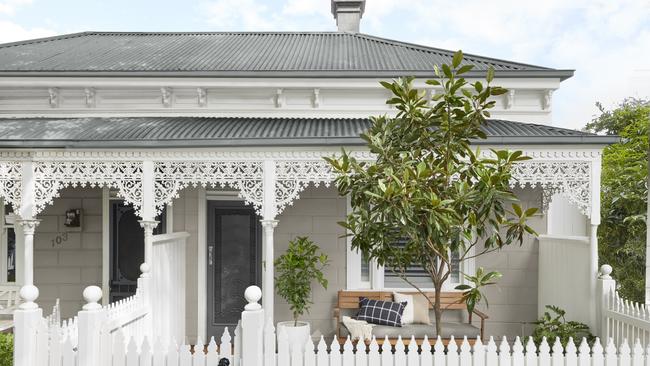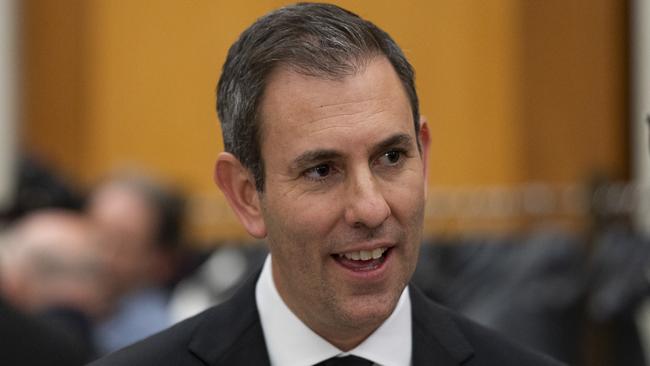
Now, it just so happens that Brisbane has the worst rental picture of any city in Australia: there is nothing to rent! The city has a vacancy rate of 1 per cent and the fastest rising rents in the market with a 13 per cent increase over the past 12 months.
The rental crisis has been triggered in part by an exit of interstate investors who chose to sell out of the city in recent months.
No surprise, to hear this is prompting considerable angst in the wider community. “There must be a better way to run the housing market!” is the call.
And the answer? Well consider the facts.
I don’t know how it went for anyone else but, in my case, diversifying interstate was a lot of trouble for a moderate reward of perhaps 6.5 per cent a year on an average borrowing rate of about 3.5 per cent. More important than that, two thirds of that final return came in the last 18 months; there were three years straight when my tax return had an unchanged valuation on the house in Wilston.

Haunted for some time by Warren Buffett’s line that “diversification is what you do when you don’t know what you‘re doing”, I often wished I had just made my life easier buying in my home state of Victoria.
As it turned out, it was a passable exercise but the days when you doubled your money in a decade seem to be over in the property market.
What’s more, the outcome would not have been as good if it were done again today due to a new tax just invented by the Queensland government aimed at interstate investors (more on that later).
The issue for the property market is that thousands of private investors have recently sold into the recent peak and in turn this has reduced the stock available to rent.
Property consultant Michael Matusik, of Matusik Property Insights, says: “Queensland is the most popular interstate market for investors across Australia. It’s cheaper than Sydney or Melbourne and that means investors can get to buy something decent with limited funds.
“Many people will often think about getting a foothold in that market if they plan to retire there too.”
The issue is that many investors saw the writing on the wall six months ago and decided to sell when the market was clearly very hot. House price rose nearly 40 per cent from mid 2020 to the end of 2021. In recent months – in common with all city markets – prices have been declining.
More than 85 per cent of all Australian residential property rented is owned by mum-and-dad investors. They run they market.

liza Owen at CoreLogic has produced a string of reports on the rental crisis. She says private investors have the right to sell any time they wish in the residential market.
“But the figures tell us that the private investor market is not enough to keep the city going,” she says. “Brisbane clearly needs built-to-rent schemes and social housing in the mix.”
Agreed. Social housing stock across Australia has been static for nearly two decades, with the exception of some recent efforts in Victoria.
But what about widening the investor base of the entire residential market? More investors would mean more supply, which would improve the outlook for renters.
The big idea just now is that super funds might enter the residential market. This idea has some currency after the Treasurer, Jim Chalmers, pushed for it at the recent jobs summit.
But the tax system is weighted against institutional ownership of residential property. Big super is not going to go anywhere near the residential market unless the investment helps to sustain what are now very public annual performance figures.
That’s not to say institutional funds don’t want to enter the space; they would if they could. Big super is already dipping a toe in the market as a developer. Consider industry fund Cbus, which has recently partnered with the Sterling Global group on a $200m top-end apartment complex in Melbourne.
The Grattan Institute envisions super funds running residential estates and offering “high quality service”. But having institutional funds owning large tracts of residential property may not be an improvement for tenants.

On an individual basis, who would you rather press to change the lock on the front door: mum and dad with one precious investment property supposedly there to finance their retirement, or a big fund with thousands of houses under management?
Super funds – or even private equity funds – could certainly help the supply of rental property, but they would also bring their own problems. They would outbid any mum and dad investor at any time and in a rising market would quickly be blamed for “pushing up property prices”.
To be realistic, private investment will remain the backbone of the rental market because the pathway for anyone else fixing the supply of rental property is full of obstacles. Early efforts in concepts such as build-to-rent projects are encouraging but remain marginal.
Of course, there are incentives built into the system for private investors – namely negative gearing and the capital gains tax discounts – but there are also endless risks and pressures that millions of everyday property investing Australians will be only too willing to tell you about.

The very worst thing that could be done just now with vacancy rates at historically low levels in every city, and this is before any uptick in immigration, would be to make it less attractive for the private investor to put money into the market.
This means any rollback of existing terms and conditions for investors, including the ability of self managed super funds to borrow for investment property, will choke private investment activity.
Which brings us back to the extraordinary developments from Queensland state government which has picked an odd moment to launch an unprecedented new tax on residential property.
The Palaszczuk government has launched a plan to raise more from tax on land inside the state borders from investors outside Queensland. The new land tax is based on land held by investors both inside the state and elsewhere across the nation.
From a tax perspective the move is a screamer. It’s an old-school provincial tax grab. Worse still, if it works it might be copied by other states.
When I reported on the tax a few days ago, we had many readers and investors comment on the move.
The last line should go to reader “Edward” who summed it up pretty well: “Punishing property investors with a change of land tax rules will exacerbate the property shortage and rents will continue to rise.”




Are private investors to blame for the rental crisis? If they are, then put me in the sin bin. I’ve played my part in the nation’s rental shortage by selling an investment property in Brisbane after nine long years.